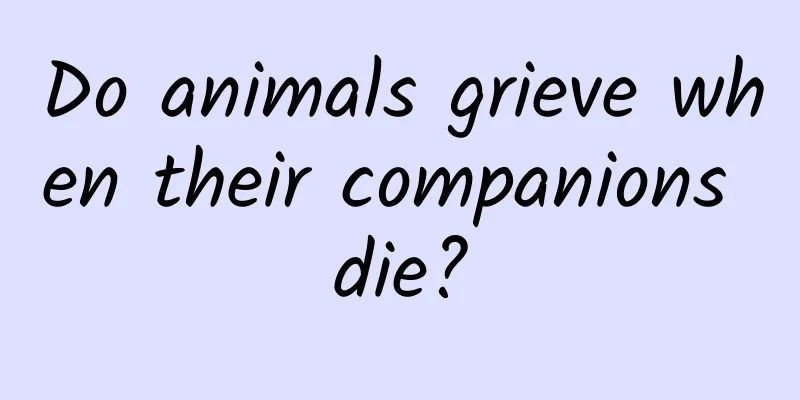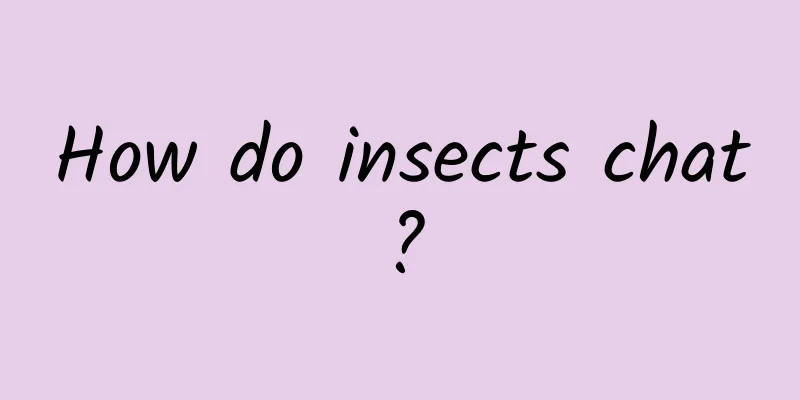Do animals grieve when their companions die?

|
In 2000, Karen McComb and others placed an elephant skull, an ivory tusk and a piece of wood about 30 meters away from a group of elephants in Kenya's Amboseli National Park. After the people left, the elephants gathered around, reaching out their trunks to the three objects, touching and sniffing them, and sometimes poking them with their paws. The skull received more attention than the wood, and the ivory received more attention than the skull. Elephants inspecting objects on the ground | Karen McComb et al. / Biology Letters (2006) This experiment actually demonstrates a phenomenon that has been recorded as early as the 1st century AD: some animals show an unusual interest in the corpses or remains of their own kind, which may have inspired people to make up the legend that "elephants are buried in mysterious elephant tombs after death." During the Chinese festival of remembering the dead, I want to explore a heavy question: How do animals view death? Do they mourn the dead like humans? You are not a fish, so how can you know the joy of fish? But we can indeed use some "unconventional methods" to understand how animals face death and what death brings to them. The truth behind these animal stories may not be as profound as people think, but it is another understanding of death. Crows gain wisdom from the dead The Chinese regard crows as a sign of bad luck and death, and in Edgar Allan Poe's poem "The Raven", the crow (Corvus corax) also represents the painful emotion of missing the dead. Corvids do have a strange relationship with death. After discovering the corpse of a fellow crow, the short-billed crow (Corvus brachyrhynchos) will gather in groups around the corpse and make warning calls. Zoologist Kaeli Swift is an expert in studying the cognitive abilities of crows. She is very curious about the "attitude" of crows facing death. She once let crows look at pictures of dead crows and then scanned their brains and found that the area responsible for behavioral decision-making was particularly active. Perhaps the crows' reaction to encountering a corpse is to think and make decisions. They look at death in a rather "rational" attitude. Illustration from Edgar Allan Poe’s The Raven, where the raven visits the mourning protagonist and tells him that the dead cannot return | Metropolitan Museum of Art For animals, paying attention to death may have important value for their own survival, such as understanding deadly dangers. Unlike many birds, crows judge danger largely through learning rather than instinct. They can observe the "suspects" next to their own bodies to know who will threaten their safety. Konrad Zacharias Lorenz, a Nobel laureate and a pioneer in animal behavior, raised many jackdaws (Coloeus monedula). Whenever he held a black, swinging object in his hand, whether it was a jackdaw or his swimming trunks, the jackdaws would rush over and peck at him as if they were facing a great enemy. If a short-billed crow sees a person with the corpse of its own kind once, it will remain wary of this person for at least six weeks. In addition, crows also get information from society. If one crow makes an alarm call to a person, other crows will follow suit, thus spreading the message that "this person is not a good person." Corpse of a Crow | Liren Varghese / inaturalist So, the crows' intense interest in the dead is probably not out of grief, but a lesson in safety. From a human point of view, this seems overly rational, rational to the point of being cold. Chimpanzees fear death Some animals, like humans, fear death, such as non-human primates. This fear may be similar to the uncanny valley effect of humans: things that look very much like humans (such as lifelike robots) make people feel scared, and monkeys are also afraid of models that look very much like monkeys. Illustration of the uncanny valley, where things that look like living people but are not living people can cause fear | Wikipedia Humans and our primate relatives share the ability to tell whether an object is alive or not. It’s a very basic cognitive ability, deeply embedded in the nervous system of many animals. It’s the reason we don’t eat rocks or mistake our own kind for pillars, thanks to our ability to tell the difference between “dead” and “alive.” But this ability can still be wrong, and a dead body is, cruelly speaking, one of the most lifelike inanimate things. When animals’ recognition function goes wrong, the scene is very heartbreaking: monkey mothers will hold their dead babies for a long time, and elephants will still roar in response to recordings of their dead companions’ cries. They may not be grieving the death, but mistakenly thinking that their children and companions are still alive. Perhaps it is the ability to distinguish between life and death that brings about the fear of death. The dead look so similar to the living that the primate mind finds it difficult to recognize. It is like a human but not a human, like a monkey but not a monkey. Our brain program is difficult to understand, and thus fear arises. A primate mother holds her dead baby | André Gonçalves, Susana Carvalho / Biological Reviews (2019) Dame Jane Goodall, a famous chimpanzee expert, once recorded a tragic incident: a chimpanzee she was observing was paralyzed by polio and could only crawl on the ground; the other chimpanzees were all shocked when they saw this unfortunate fellow. It looked no different from an ordinary chimpanzee, but the way it moved was so strange that it was beyond their cognitive ability. Humans have used the same uncanny valley principle to create monsters that evoke fear - zombies that look like humans and move strangely. Like humans, chimpanzees eventually have to face reality: corpses are "dead things" and are different from the living. In the Taï Forest, chimpanzees are more afraid of the corpses of their own kind than the living chimpanzees bitten by leopards. They lick the wounds of living chimpanzees but ignore the corpses. Compared with chimpanzees in other places, chimpanzees in the Taï Forest are more likely to be killed by leopards. Perhaps the cruel life has taught them some experience. Understanding dynastic changes from corpses Back to the elephants mentioned at the beginning. The African savanna elephant (Loxodonta africana) is unique in the entire animal kingdom in its interest in carcasses. Whether they find a newly dead body or a body that has turned to bones, the elephants will flock to it, carefully touch it, smell it, and pick up bones or tusks to take away. Crows' interest in corpses usually only lasts for a dozen minutes, while elephants will come to "return visits" after observing corpses in one place for many days. Elephants can also recognize bones of their own kind and bones of other animals, care more about their own kind, and are most interested in ivory. However, this touching "affection" may also have utilitarian reasons behind it. Elephant skull lying on the ground in Tanzania | Laika ac / Wikimedia Commons African savanna elephants are highly social animals. Like humans, their survival is closely related to interpersonal relationships. For example, the area where female elephants forage for food and water is determined by the social status of the herd members; the mating opportunities of male elephants depend on the presence of other "rival" male elephants. Therefore, elephants must update information about their own kind at any time. Elephants that have been separated for a long time will touch and sniff each other with their long trunks, probably to understand the current situation of their companions, which is equivalent to humans exchanging news and gossip. Therefore, scientists have proposed a hypothesis: elephants are interested in corpses because the death of their own kind may be a big news, related to the "situation in elephant country". So they want to study carefully and understand the identity of the deceased. Elephants have an extremely sensitive sense of smell, and they can still get some information from the corpse even if it is highly decomposed. A herd of elephants in Amboseli National Park | Ray in Manila / Wikimedia Commons Whether it is crows or elephants, the reason they care about the dead seems to be ultimately directed at the living. Such a pragmatic view of death seems a bit cold and heartless. But the study of biology and evolution is originally centered on the interests of the living - the survival of organisms and the continuation of genes. Qingming Festival is a day for tomb sweeping and outings. The desolate graves are sprouting green grass. Death is the end, and life continues, endlessly. References [1] Goldenberg, SZ, & Wittemyer, G. (2020). Elephant behavior toward the dead: A review and insights from field observations. Primates, 61(1), 119-128. [2] Gonçalves, A., & Biro, D. (2018). Comparative thanatology, an integrative approach: exploring sensory/cognitive aspects of death recognition in vertebrates and invertebrates. Philosophical Transactions of the Royal Society B: Biological Sciences, 373(1754), 20170263. Author: Little Wombat Editor: Mai Mai, Pee Pee Shrimp This article comes from the Species Calendar, welcome to forward If you need to reprint, please contact [email protected] |
<<: Even without the "banana fan", Wukong can still cross the Flaming Mountain丨Tutushidao
>>: Essential for driving! Nine pictures to help you avoid these "blind spot killers"
Recommend
Complete online event operation process!
Online activities must be able to produce short-t...
The latest flood forecast for 2020: the water level in the middle reaches of the Yangtze River is expected to rise again, and the water level of Poyang Lake is still above the warning level!
According to news around 22:00 on July 15, the wa...
Is Apple really using the USB-C interface to make money by selling accessories?
Apple's full deployment of USB-C interfaces on...
What are the “menstrual-like” hot spots in Beijing, Shanghai and Guangzhou?
In this article, Li Jiaoshou analyzes: After chan...
Green plums, the ultimate romance of the Chinese people
Written by Wei Shuihua The Latin scientific name ...
Youzi operates two hours a day and earns more than 1,000 yuan a day.
This project was created when I was researching p...
Baidu Baitong promotion brand advertising display location and display method!
Where are the display locations for brand ads? 1....
The teeth you use to eat may have been fish scales a long time ago!
Did you know that the emergence of teeth is one o...
Wuwei teacher main line capture dragon (03 issue) November
Wuwei teacher's main line of catching dragons...
Baidu SEM Bidder Practical Super God Guide Course
Learn to master: platform operation, account buil...
A must-read for APP promotion, complete promotion data analysis in 3 steps!
When I was reporting business dynamics to the bos...
Why did the three major IPs - "Tiny Times", "Old Boy" and "Boonie Bears" all find LeTV and successfully cross over?
As a winner of Toutiao's Qingyun Plan and Bai...
Insights | Three abilities a person needs
Famous Artists Gallery | Chen Banding, also known...
Xiaomi has difficulty entering the US market, with operator subsidies becoming the primary problem
Chinese mobile technology company Xiaomi recently...
QQ group new gameplay can realize automatic hanging money making, earning 100+ a day is very easy
QQ group is a relatively unpopular new way to pla...









